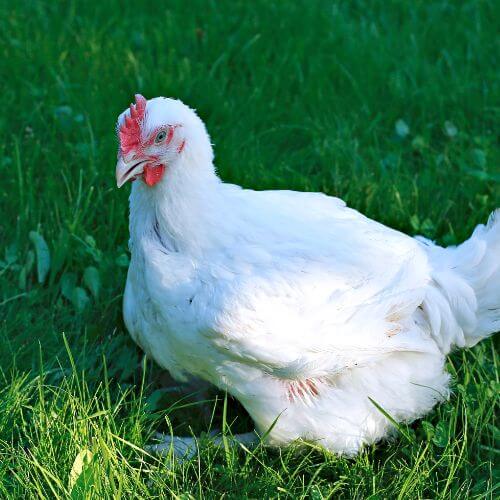
Highly Contagious Marek's disease ('MD' or 'fowl paralysis') is a very common issue in chickens caused by a herpes virus. This disease affects both commercial and backyard poultry and may result in death or severe production loss. The disease causes changes in many of the nerves and may cause tumours in major internal organs. Chickens (broiler, breeder, layer, etc.) are the main species affected, although the disease occurs rarely in some other types of birds. Symptoms Early stage birds are most susceptible to infection. Most deaths from Marek's disease occur between 8 and 20 weeks of age, although in some cases the disease may be seen in birds as young as 3-4 weeks of age or as old as one year of age. Methods of Spread Marek's disease virus occurs commonly wherever chickens are raised. The virus is highly infectious and once introduced into a flock it spreads rapidly to unvaccinated birds, so that most chickens in an unvaccinated flock become infected. Infected chickens carry the virus for life whether they develop the disease or not, and continue to shed the virus for long periods. The virus is shed from the feather follicles and spreads readily in fluff and dust, gaining entry when the bird breathes infected dust particles. This material can also be carried by people and equipment. The virus can survive in the environment for as long as several months at room temperature. It is not spread from the hen to the chicken through the egg. Treatment There is no treatment for Marek's disease. Diseased birds should be promptly removed from the flock and humanely destroyed. Other birds in the flock are likely to be infected at this stage also, so close monitoring of all birds is important. Prevention Although vaccines are commonly used in the commercial poultry industry, small numbers of doses cannot be purchased for use in backyard flocks. For backyard flocks, the best protection against Marek's disease is obtained by buying, from a commercial source, birds that have been correctly vaccinated. Vaccination alone will not prevent Marek's disease. Particularly for commercial flocks, it is important to maintain good biosecurity measures to ensure that vaccinated chicks will develop immunity before they are exposed to a severe challenge of virus, for example: These practices will help maintain the flock's health and ensure that the birds have optimum resistance to Marek's disease infection.HIGHLY CONTAGIOUS DISEASE IN POULTRY - MAREK'S DISEASE